Article cover image design by shtef-sokolovich
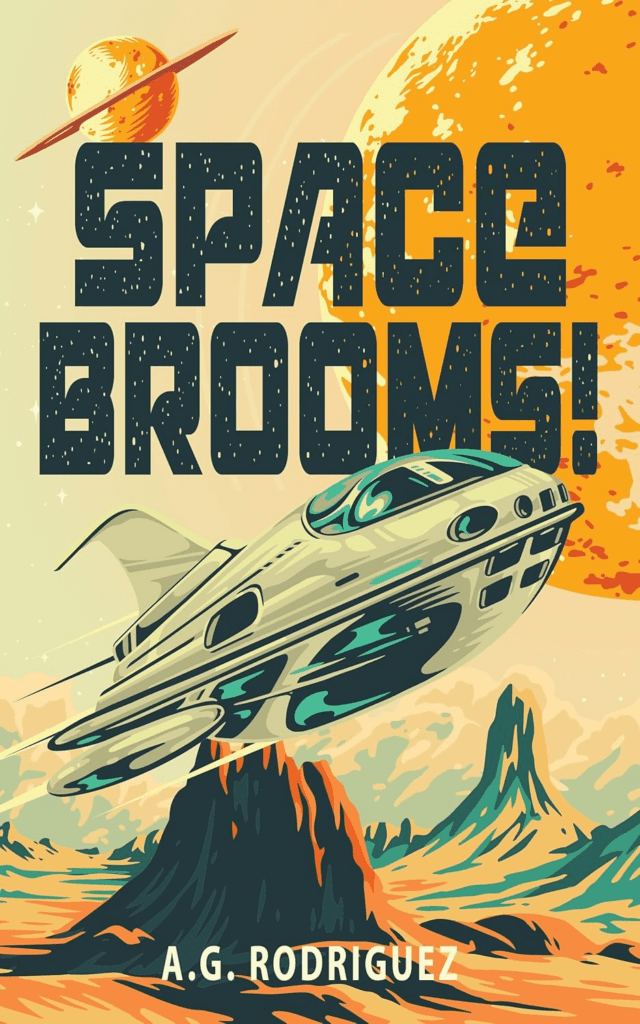
In my humble opinion, all the best stories, no matter the genre, feature strangers bonding over shared experiences. These shared experiences, whether good, bad or traumatic, in turn create a family unit. The phenomenon is called found family and it is one of the most important themes in my book, Space Brooms!. It’s a familiar trope that’s in most media formats, even our everyday lives. Take some of my favorites, for example.
I love the show Futurama. Whittle away all the abstract craziness and goofy antics given to us by Matt Groening and David X. Cohen, and it’s really just a story about the happenings of a group of wildly different beings from distinctly different walks of life becoming, as Professor Farnsworth would say, “a source of cheap labor, like a family.” Or take Dan Simmons sci-fi epic Hyperion. A group of individuals with seemingly nothing in common are all brought together by the strings of fate to defeat the living embodiment of terror in the universe. They find that their stories intertwine and, through the shared trauma brought on by the Shrike, they all band together as one group, one unit, one family. Found family is in the show The Expanse, showcasing a team of salvagers who become a close-knit family all while saving the galaxy. It’s in The Lord of the Rings when the fellowship goes to the ends of the earth for each other. It’s in my favorite video game Chrono Trigger. Even some of you may have those close-knit groups bound not by blood but by love for each other; a family of your own choosing. It is an undeniably universal theme.
When I wrote Space Brooms!, I knew it would have to have a found family.
Found family is not just a thematic trope either. It can be a tool to spur the protagonists on toward extreme personal growth. It is a catalyst through which true change occurs. It provides someone with a healthier, more accepting experience than what they are used to in their biological family. So, in essence, found family is a unit of our own creation that provides the strength and support needed to initiate real growth and with whom we experience true acceptance. Space Brooms! presents this idea.
Enter Johnny Gomez. Johnny is a custodian, or space broom, aboard the farthest space station from the sun, floating just outside the heliosphere. He’s down on his luck. He’s in a dead end job. He’s given up on his dream. Johnny is nearing middle age. He doesn’t speak to the only biological family he has left, his tio and tia. He has one friend, a cybernetically augmented human named Rygar, who happens to be the most supportive person in his life. But just like my favorite examples, it takes more than one person to create that found family.
Johnny, from the start, is convinced that if he could only pursue his life of adventure,
he’d be happy. All his problems would fade away or be solved in an instant if he could fly among the stars, rescuing damsels in distress or saving entire worlds from destruction. You know, the typical delusions of grandeur some heroes have.
Luckily for Johnny, or unluckily depending on how you look at it, he gets his long
desired shot at adventure while cleaning a particularly disgusting zero-g restroom. It is through this chance encounter with a data chit, this upward thrust into the life he always wanted, that Johnny meets the rest of the members of his found family. At first, these random acquaintances present with seemingly selfish tactics and objectives: money, wealth, and notoriety. Johnny meets Hooper, the charismatic space cowboy, Leilani, the stoic tactician and mechanic, and Lisette, the
intelligent, tech savvy black marketeer. Johnny joins in as the outcast, the guy with no adventuring experience who is in over his head at every turn. Yet, despite their rough beginnings, they all end up choosing each other in some way or the other. Even when their lives are on the line, they would rather be with each other than anywhere else.
For Johnny, the actual experience of his adventure doesn’t live up to his delusions of grandeur. He’s sailing across the solar system in a state-of-the-art spacecraft, with nefarious elements after him and all he can think about is not being in such a predicament. It’s only in the end, through that realization, that Johnny learns that his time aboard Hooper’s ship, the Mentirosa, wasn’t the greatest time in his life because of the danger or intrigue. It was the best because of the people. It was because of the family which they created.
It is thanks to this group of strangers, this newly found family, that Johnny experiences true personal growth. Without Hooper, Leilani, and Lisette, Johnny would never have experienced the feeling of being wanted, not just because of what he can do, but for who he is as a person. Without Hooper, Johnny doesn’t have the opportunity to build confidence in himself and his abilities. Without Leilani, Johnny isn’t given the opportunity to learn new things and speak up for himself. And without Lisette, Johnny doesn’t realize that he can come to care about people who care about him. If not for all of that, Johnny would never have had the courage to
repair the broken relationship between him and his tio and tia. The adventure is just a bonus. To borrow a well-traveled phrase, the true treasure was the friends he made along the way. In Johnny’s case, it was the family he found along the way.
So, why are these stories important? Why is it necessary to portray these families of our own making in media? It is because estrangement from biological family is too often the experience among many people. Families become a source of stress, discontent, and contempt. People lose families over death, squabbles, failure to collaborate, political viewpoints, a myriad of other things from the minute to the extreme. Found family stories offer a ray of hope. They are a beacon that screams that you don’t have to build a family unit bound by the constraints of
blood or DNA. You can have all the love, support, and friendship you need to thrive in a family of your own making. It took Johnny Gomez several beatings, a jaunt across the solar system with strangers, and a failed adventure to find his family. But he did. And yes, his found family may include two blood relatives, his tio and tia with whom he was estranged, but who’s to say found family can’t include repaired relationships. Regardless, Johnny found what he was looking for. And it was more than he could have ever hoped for. He may have fooled himself into thinking he
wanted a life of adventure. But what he truly wanted, and needed, was family.
Blurb
A fun, sci-fi romp where custodian – or space broom – Johnny Gomez teams up with smugglers and is thrust into an unforgettable adventure. Great read for fans of Stringers by Chris Panatier.
Everyone aboard Kilgore Station is living their best life. Everyone except for Johnny Gomez.
While humans, the augmented, and aliens of all shapes and sizes enjoy exotic cuisine on the dining deck, or gamble away their credits on the entertainment deck, Johnny is elbow-deep in oily, black, alien excrement. A ‘space broom’ custodian for the entire station.
This was obviously not the life Johnny dreamt of. Ten years ago, he travelled to Kilgore, the farthest space station in our solar system, in search of fortune like everyone else. Some people are just luckier than others.
Yet his meaningless, uneventful existence is immediately turned upside down when he happens upon a tiny glass data-chit, hidden amongst the alien poop he must clean up. Unbeknownst to him, every nefarious creature in the solar system will soon be after him to claim it for their own.
With the help of his augmented roommate, a pair of smugglers and a mysterious and beautiful stranger, Johnny fights off thugs and sails as fast as possible to earth’s moon, Luna, in effort to sell the chit to the Obinna Crime Syndicate. But with assassins and mobsters on their tail, the trip is anything but a cakewalk. And Luna itself proves to be nothing like a safe haven, when Johnny’s painful past finally catches up to him…
About the Author
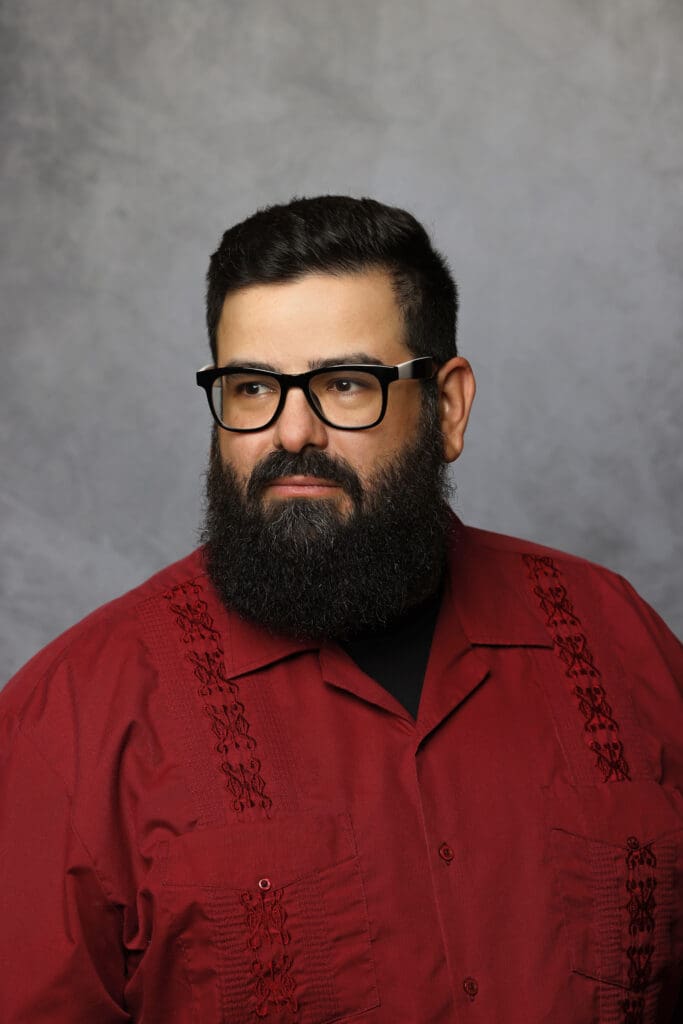
A.G. Rodriguez has been a storyteller since he could form sentences. He was born in Chicago, Illinois to Puerto Rican emigrants, and raised in several different cities throughout the United States. He spent most of his youth reading science fiction and fantasy and writing short stories, poetry, and even comic strips. He currently lives in southwest New Mexico where he spends his days creating new worlds, consuming all the tacos, beer, and bourbon he can get his hands on, and loving on every dog he sees. You can find him on Twitter, Facebook, and Instagram (@agrwrites)

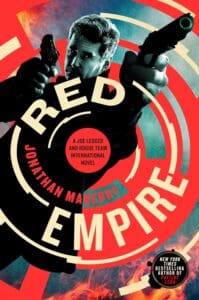
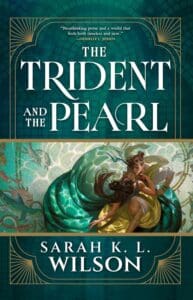
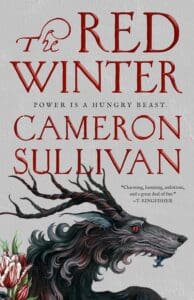
Leave a Reply